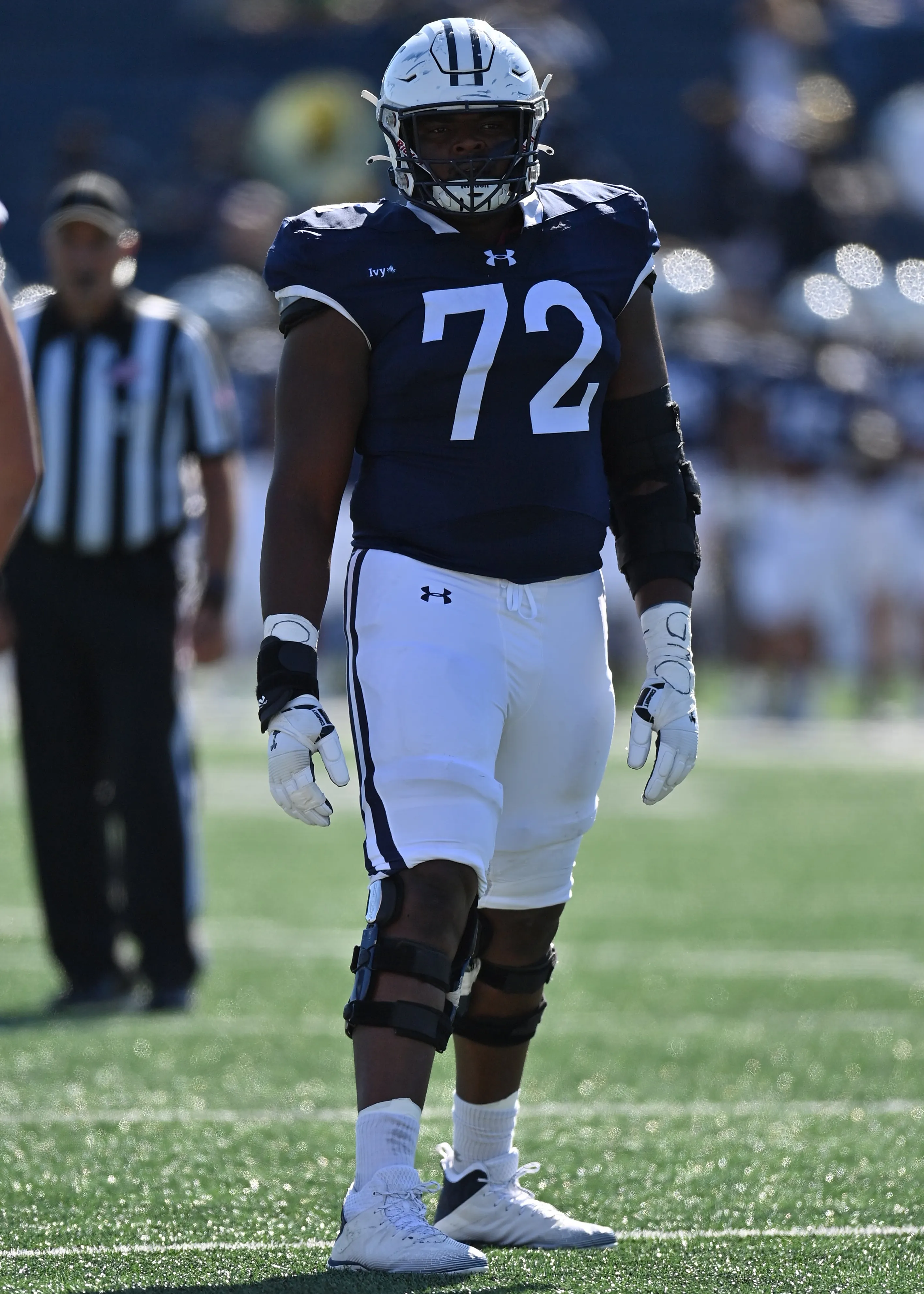After deliberating with Arlington Heights --- the 326-acre land the Chicago Bears bought for $197.2 million --- about developing a stadium at Arlington Park, the Bears suddenly pivoted off the location.
"Everything is on the table," Kevin Warren told Peter King on his podcast. "We had that period where we were focused on Arlington. We have some issues to work on. There's a possibility there. But one of the things I promised myself and promised the McCaskeys is that I would come in and take a fresh look at what's the right thing to do.
"And if it turns out to be Arlington, it turns out to be Arlington."
Stay in the game with the latest updates on your beloved Chicago sports teams! Sign up here for our All Access Daily newsletter.
How did the Bears get here? What does the future look like?
Let's take a look at how the Bears and their stadium endeavors have unfolded so far.
What has happened
On Feb. 15, the Bears released a letter saying they closed on the purchase of the 326-acre plot of land in Arlington Heights and the Arlington Park property "to secure the potential of beginning a new and exciting chapter for the Bears, our fans, the Chicagoland community, and the State of Illinois."
Bears News
The Bears first put a purchase agreement on the property in September of 2021. One year later, the Bears unveiled early plans to build a fully enclosed dome stadium on the property as well as a multi-purpose entertainment, commercial/retail, and housing district.
The Bears have said from the start of the process that they will fully fund the construction of the stadium, which is expected to cost between $2 and $3 billion. However, the team has said multiple times it will need help with the development of the other areas.
“We have publicly stated and repeat here again: If we construct a state-of-the-art stadium, we will not seek taxpayer funds locally or otherwise for the structure. If we proceed, however, this project would require assistance to ensure feasibility, including our securing property tax certainty and support for infrastructure commensurate with the public benefits the project will yield to the region,” the Bears said in a statement.
“For the development to move forward, and for this effort to be financially feasible, a public-private partnership addressing predictable taxes and necessary infrastructure funding for public uses is essential. Public funds for infrastructure will provide regional improvements such as roads for better traffic flow and water drainage for residents throughout the area.”
The Bears have said numerous times that the purchase and development of the Arlington Heights property was their sole focus as it pertains to a new stadium.
The Bears’ lease with Soldier Field is slated to end in 2033.
Tax issues cause change of course
The Bears have mentioned since the beginning they will need assistance with the infrastructure and property tax certainty. They seemingly lost sight of the latter over the summer.
The property was previously valued at $33 million by Cook County. However, during a triennial reassessment, Assessor Fritz Kaegi’s office placed the value at $197 million. That six-fold spike naturally would send the Bears’ property tax bill through the roof.
Churchill Downs, who was on the hook for the increased tax bill in 2022, filed an appeal saying that the property value was $37.2 million. School districts in the area which are funded by property taxes countered with $150 million. The two sides eventually reached a settlement at $95 million, which took Churchill Downs’ tax payment from around $16.2 million to just under $7.8 million.
However, that was just a one-year agreement between the two sides. With the Bears now taking over the tax bill, they will have to revisit the issue and try to come to an agreement. That $95 million number is the reason the Bears have started to look elsewhere, according to a team statement released over the summer.
“The Chicago Bears goal of building the largest single development project in Illinois history led by billions of dollars in private capital investment, and the jobs and economic benefits generated, is at risk in Arlington Heights. The stadium-based project remains broadly popular in Arlington Heights, Chicagoland and the state. However, the property’s original assessment at five times the 2021 tax value, and the recent settlement with Churchill Downs for 2022 being three times higher, fails to reflect the property is not operational and not commercially viable in its current state. We will continue the ongoing demolition activity and work toward a path forward in Arlington Heights, but it is no longer our singular focus. It is our responsibility to listen to other municipalities in Chicagoland about potential locations that can deliver on this transformational opportunity for our fans, our club and the State of Illinois.”
What Assessor Fritz Kaegi’s office said
"Our office’s mission is to assess property based on market value," a spokesperson for the Cook County Assessor's office said Friday. "The 2022 assessment of the former Arlington Racecourse site is consistent with both the 2023 purchase price of the property and the price per square foot of other similarly sized land in the area. The facts speak for themselves."
Other municipalities make their pitch
With the Bears and Arlington Heights battling over taxes, Naperville Mayor Scott Wehrli sent Bears president Kevin Warren a letter offering Naperville as the potential new home for the Bears.
"The city would welcome the opportunity to review your business needs and our available properties," Wehrli's letter said. "Through prudent planning, Naperville is accessible via our region's major interstates and Metra. We have several available or to-be-available sites that may fit the characteristics you are looking for in your future home."
Chicago Mayor Brandon Johnson and Warren have had two separate meetings. Here's their last joint statement.
“Today we met and discussed our shared values and commitment to the City of Chicago, the importance of deep roots and the need for equitable community investment throughout the city. We are both committed to the idea that the city and its major civic institutions must grow and evolve together to meet the needs of the future. We look forward to continuing the dialogue around these shared values.”
Ten days after Naperville attempted to enter the stadium discussion, another suburb tried to throw its hat in the ring. Waukegan Mayor Ann B. Taylor sent the Bears a letter asking them to meet to discuss the opportunities available for the franchise in the suburb.
“We believe that the Monsters of the Midway deserve the opportunity to continue the tradition of playing along the shores of Lake Michigan, with the market opportunity of having a year-round facility capable of hosting other major events, including the Super Bowl, the Final Four, and other events of an international scale," Taylor wrote in her letter.
Aurora is the latest municipality to try their hand at convincing the Bears to come their way.
". . . Welcoming a historic organization such as the Chicago Bears would enhance our bold vision for Aurora and will provide the Chicago Bears with a new home to begin the next phase of your storied history. We invite you to visit our great city to explore the exciting opportunity Aurora can bring to the world-famous Chicago Bears."
What's next?
Warren told King he hopes to come to a decision on the location of the stadium within the next year. After that, he's specific about the timeline of the actual construction.
"I'm hopeful that (decision comes) within the next 12 months," Warren said. "I always go by when a shovel goes in the ground. I believe once a shovel goes in the ground, it's probably three years."
The Bears brought in Warren to do exactly that --- plan and build a stadium. He's done it once already. In Minnesota, he helped the Vikings construct U.S. Bank stadium, one of the most prominent stadium designs in recent history.
He's also not naive to the politics that surround constructing a stadium, especially in Chicago.
“In regard to why I can get it done, one thing I found out, especially with stadium development projects, you have to create what’s the why?” Warren said. “And what’s the why for everyone? It can’t just be, what’s the why for the Chicago Bears, or what’s the why for this group or that group? One of the things I’ll really start thinking is, what’s the why? No matter what constituent group you put in front of me, what’s the why? The more common the why that you have, the more people will understand.
“With stadium development projects, and one of the many things I learned in Minnesota, is you have to create a compelling story of why it makes sense. I just believe at this point in time, where we are in our lifespan in the NFL of the Chicago Bears, that the time is right. I’ll need to study the project and understand and lean on other people, talk with Ted [Phillips] and other folks in the organization to come up with what that why is. But those are things that I love. To be able to walk the project and talk with constituents and groups and come up with why this makes sense. I’m confident with the intellectual talent in this state and in this city and all the people who love the Chicago Bears will be able to come together.”
Remember, the Bears paid a hefty price tag to own the land in Arlington Heights. The idea of selling it or developing it into something that isn't a stadium doesn't seem feasible.
The Halas/McCaskey family have their money tied up in the Bears, not external interests. Jerry Jones could eat the cost of this land and find a new location at the snap of his fingers. The Bears can't.
According to Warren on King's podcast, the Bears and Arlington Heights have a fall meeting to discuss the prospects of their tax bill once more. That meeting will be crucial in determining the real answer to the Bears stadium location.
Right now, it's in flux. But it isn't cemented. That'll come soon enough.
For now, enjoy Soldier Field while you can. Because, either way it unfolds, the Bears are likely moving out.


